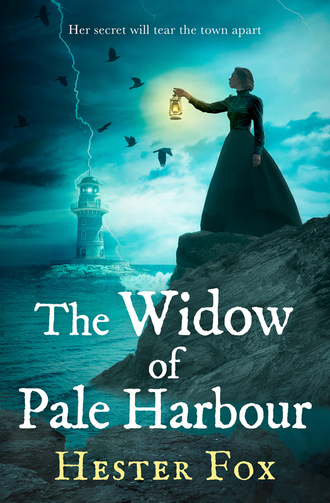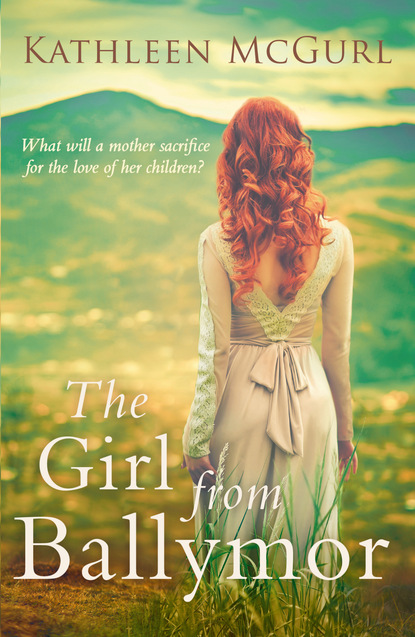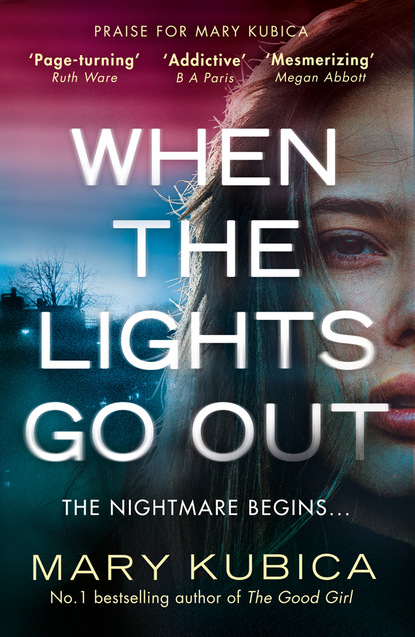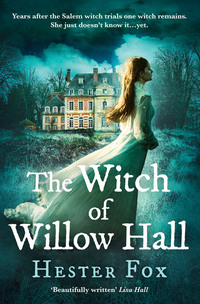
Полная версия
The Widow Of Pale Harbour
“You’re not what I was expecting either. For whatever you have heard of me, I confess that when I heard we were to have a new minister, I envisioned a man of quite advanced years, with a gray beard down to his watch fob.” She stole a glance at his work-roughened hands, his broad shoulders. “It seems we were both mistaken in our preconceptions, for you must have imagined me quite the specter if the people of this town are to be believed.”
The minister looked down at his hands, as if it pained him to admit the truth. “Yes,” he murmured. “Something like that.”
Satisfied, she sat back a little in the sofa. “Well, I assure you I don’t have a tail.”
At this, the corner of his full lips quirked up ever so slightly, and an unexpected jolt of warmth ran through her. His face lost some of its hardness and his hazel eyes shone warmly, his smile all the more rewarding because of his reserve. To make a man like this laugh, well, that would be a coup indeed.
Some of the tension from her blunder about the chair lifted, and she saw him relax in his seat as well, crossing his long legs at the ankles. He draped his hands on the chair arms, and she caught a glimpse of the cut on his hand that was so bad that he had supposedly needed medical attention. She bit the inside of her lip to keep from smiling...it was tiny, hardly more than a scratch, and all at once she understood his game.
“Oh! Your cut. I nearly forgot,” she said, moving to the door. “I’ll ask Helen to bring some linen and hot water.”
“I really don’t need anything. It’s nothing.”
Sophronia blinked at him with big, innocent eyes. “Oh, but I thought you were injured?”
The tips of his ears pinkened. “It’s not so bad as all that,” he mumbled.
Just then Helen materialized in the door. “You called?”
“Yes,” Sophronia said, trying not to enjoy herself too much. “Our guest has quite the injury, and I was wondering if you would be a dear and fetch us some dressings for his wound?”
Helen’s sharp gaze darted to the minister and she scowled. But she dipped her head, murmuring, “As you wish.”
She stalked back out into the hallway, and Sophronia felt her cheeks flushing. Helen’s dislike of the minister was obvious, and terribly rude. “I apologize. She’s always been protective of me, but especially lately since—”
The minister’s gaze sharpened and Sophronia clamped her mouth shut. He didn’t need to know about the ravens, the feather, the sensation that she was being watched.
Sitting back down, Sophronia finally broached the subject that had been keeping her awake with excitement for the past week. “So, tell me about this new church.”
The minister opened his mouth and then closed it again. It might have been her imagination, but something like panic momentarily clouded his eyes and she thought he might leap out of his chair again. But then he cleared his throat and the look passed. “It’s... It will be transcendentalist. Similar to Unitarianism, if you are familiar with it?”
Transcendentalist! She had always admired the Unitarian school of thought, but the churches themselves were rather somber affairs. Transcendentalism, on the other hand, incorporated all the most progressive tenets of Unitarianism, such as the rejection of original sin and predestination, and then soared even higher with the idea that society and politics were corrupting forces to the purity of the individual. With transcendentalism, there was no need for society, and that suited her just fine.
She waited for him to elaborate, but nothing more came. She gave him an encouraging smile. “Well, I think it’s splendid. You must know Emerson, of course. I absolutely loved his first series of essays, and am anxious to get my hands on his second series. I devour everything I can from the leading minds on transcendentalism.”
“Emerson? Oh, yes.” He knotted his fingers together, not meeting her eye. “He’s very good.”
Sophronia frowned. He had not looked like she was expecting him to, and now it seemed that he would not converse easily on the subjects to which she had so looked forward. She tried again.
“I’d be curious to know what you think of his concept of the oversoul.” The essay explored the fascinating idea of the human soul and its relationship to other souls and how every person, alive and gone before, was connected. It was unlike anything Sophronia had ever read. “I found the theories intriguing and very much wanted to believe that Emerson’s beautiful prose held the truth, but it was difficult to do so when he gives us only anecdotes and stories. Perhaps, as a spiritual man, you need no such proof, but surely the purpose of an essay is to persuade?”
The minister looked like a fish out of water; he opened his mouth, but no sound came out. Just as Sophronia was about to repeat herself, Helen appeared with the tea, and whatever he had been about to say was forgotten.
“Thank you, Helen,” Sophronia said as she set the tray down. “You’re a treasure.”
“It’s nothing,” Helen said brusquely, but there was a faint glow of pride in her eyes. “Will there be anything else?”
“That will be all, thank you.”
The minister didn’t say anything as she poured out two cups of tea, just absently rolled some of the linen that Helen had brought around the cut on his palm. She hazarded a glance at him, and wondered what she looked like to him, with her scar, silver and smooth from time, tracing a path from her temple down to her jaw. Did he see a poised, well-spoken woman of means? Or was he able to see beneath her mask, to the scared, haunted ghost of a woman underneath?
When she looked up, she realized she had not been the only one studying the other. He had been staring at her hands as she prepared the tea. He cleared his throat, as if aware he had been caught, and took the china cup from her. He nodded to the paintings on the wall behind her. “You’re a collector,” he said.
She craned her head around and followed his gaze. Turning back, she gave him a shy smile. “Oh, yes. Are you an admirer of art?”
He nodded. Standing, he moved carefully to the wall. Sophronia knew her collection was exquisite, rivaling some of the best in places like the Athenaeum in Boston. But whereas the walls there were covered in somber portraits and classical allegories, her collection skewed toward the wild, with lots of rugged landscapes and people who were no more than tiny smudges against the grandeur of nature.
He must have been so lost in a world of turbulent waterfalls and sun-soaked valleys that he hadn’t turned when she stood to join him. Her sleeve brushed against his wrist as she pointed to a large watercolor in an elaborate gilt frame. “That’s a Turner,” she said, unable to keep the pride from her voice.
“It’s...beautiful,” he murmured.
It really was. A tempest of black waves swirled about an achingly fragile ship, shafts of light fighting to break through the cocoon of dark clouds. The painting was alive, full of movement, yet somehow peaceful; the ship was just one element of the storm, one little drama among the greater backdrop of nature. It was her favorite piece.
They moved along the wall as she pointed out some of her finer pieces, transfixed by the animation in his eyes as she discussed the merits of each.
He stopped in front of a small-framed article, illustrated with a lithograph, and nodded toward it. “Was your husband a writer?”
Pressing her lips together, she paused before answering. Why were men always so quick to attribute accomplishments to other men? “He owned a magazine,” she said. “That was Nathaniel’s one great kindness—he left me his magazine when he died. This was the front page from the first printing I oversaw as owner and submissions editor.”
He peered closer at the yellowed paper under glass and looked up at her in surprise. “What, you own Carver’s Monthly?”
“The one and only.”
He gave a long, low whistle and rocked back on his heels. “Damn.”
She raised a brow at the unexpected profanity, and he immediately colored. “Sorry. Only that I used to read it every week.”
“Then you have exceedingly good taste,” she said with a broad smile, finding herself unable to take offense. “It’s funny how for all their distrust of me, as soon as the townspeople think I can help them with something, they’re more than happy to put aside their prejudice and knock on my door. Just last month, Jasper Gibbs came to me with a volume of stories he had written, asking me to publish them in the magazine.”
“And did you?”
“Goodness, no. They were awful.”
Sun was coming through the windows in a low, hazy slant. They sat back down as the clock in the corner struck three. He’d been in her parlor for almost an hour, and though he was quiet, he was a good listener and she found herself wishing he would stay for hours more.
But before she knew it, he was rising to his feet and setting aside the tea, which he had hardly touched. “I’m afraid I’ve imposed on your hospitality long enough.”
“You did no such thing,” she said, trying not to let her disappointment show. “As you can imagine, visitors are few and far between, and I always welcome good conversation.”
Her hand paused on the doorknob before she released him out into the chill evening. “Do come again, Reverend. I believe we have much more to discuss.”
6
Gabriel emerged from the house in a haze. Nothing was as it seemed. Dark, abandoned churches in the middle of a roof-shaking thunderstorm didn’t scare him, but the erudite widow thinking him simple horrified him. Damn, but he had made a fool of himself when he had sat in her dead husband’s chair. Of course she wouldn’t want a hulking man like him breaking a beloved relic. She had seen right through him, he was sure of it, saw his charade, his roughness, his deficiencies. It was as if she could read every piece of ugly gossip in the town printed on his face.
There had been something comforting and cozy about the room, not to mention the enigmatic woman who had sat across from him, her silver eyes trained on him as if he were the most interesting person in the world, her smile as warm and honey-mellow as the late-afternoon light. And those hands, those lovely hands. He could no more imagine them taking the life of a man than he could them snapping the necks of birds and building a macabre altar in an abandoned church. He felt a sudden rush of guilt for even entertaining the idea that she could have been responsible for such a thing.
The sun was sinking fast, and the cold air roused him from his reveries. He looked up to find the other woman, Helen, standing on the front path. She was holding something black and sleek in her arms. Was that... Was she holding a bird?
As he grew closer, he saw it was a raven. It was large and sleek, and apparently docile. As carefully as if she was cradling a newborn, Helen crouched down and let the raven hop from her hands. There was something wrong with its leg, and it bobbled uncertainly before gaining its balance and pecking at the ground.
The crunch of gravel under Gabriel’s shoes gave him away. Helen stood back up, her expression turning stony as she watched him approach.
“Helen, was it?” Perhaps she could answer the questions that Gabriel had been too diffident to ask Mrs. Carver.
She scowled, an expression that he would have thought permanent on her face, if he had not seen her light up when Mrs. Carver spoke to her. He kept one eye trained on the raven; could it be one of those he had seen his first night in the church?
“You’ll forgive me for asking, but do you know about all the dead animals, the strange things that people have been finding around town?” The tack might have been too direct, but he had nothing to lose by asking her; she already clearly disliked him.
Helen gave him a measured look, answering him slowly, as if he were a small child. “I know that folk like to make a fuss out of nothing.”
“But you work for Mrs. Carver...you don’t share their opinion of her?”
In an instant, the closed, suspicious look evaporated from her face, and her dark eyes misted. “Never,” she said. “Sophy saved me.”
“Saved you?”
“That’s right,” she said, jutting her chin.
“How do you mean?”
Helen heaved a sigh and crossed her arms. “If you must know, after my husband left, I ended up in the poorhouse.”
She was staring at him with unnerving intensity. “I’m sorry to hear that,” he said.
Her scowl deepened. “I don’t need your pity. She took me on as a housemaid, and I haven’t left her side ever since. We saved each other,” she said, her eyes frighteningly bright.
“Saved each other?”
“You wouldn’t understand,” she snapped at him, apparently done with her nostalgic reminiscing. “Now, if that will be all?”
She didn’t give him a chance to respond before she was scooping the raven back up and briskly making her way to the house.
Gabriel walked slowly back toward the road, Helen’s story swirling in his mind. He could picture the gentle and elegant Mrs. Carver, basket on her arm, leaning over women in their sickbeds in the poorhouse and doling out comforting words. But good God, what was he missing? How could that same woman be painted as a witch, a murderer?
When he reached the gate, he stopped and glanced up to the windows, but again, no face stared back down at him.

Helen stood in the carriage house window, watching the interfering minister finally turn and leave the grounds. She let out a breath.
What right did he have to come in here, dredging up painful memories and upsetting Sophronia? Sophy would never say as much, of course, but Helen could tell that the visit had taken its toll on her.
The raven let out a soft squawk in her arms, and she absently stroked its head. She still remembered the day Sophronia had come to the poorhouse. She had been like an angel with her bright blue dress and ready, sympathetic smile. She’d come armed with charity baskets for the women, God bless her soul. When she passed by Helen’s bed, she’d asked her in the kindest, gentlest voice what ailed her. Helen had told her it was a chest complaint, though in truth it was so much more than that. It was a broken spirit from being abandoned by the man who had sworn to protect her, a broken heart for the children she would never have.
Sophronia had come back the next day with a bottle of medicine. Helen had taken her hand to thank her, and it was then that she knew that their destinies were intertwined. She felt something pass between them, like a flame leaping from the match to tinder. When she was well enough to leave, Sopronia had taken her on as a maid, and since then they had grown as close as sisters, as dependent on each other as mother and child. But no matter how close they were, Helen knew from experience that pretty words and promises were not enough.
She hadn’t been resorting to hyperbole when she’d told the minister that she and Sophronia had saved each other. When Sophronia had whisked her away from that wretched poorhouse, Helen had felt forever in Sophronia’s debt. But Helen had since returned the favor.
Sophronia would never know how much Helen had done for her, would never know the lengths to which she had gone to keep her safe, and Helen would not burden her with that. But a childhood spent learning herb-craft and spells from the woman on the farm next to her family’s in Vermont meant that Helen had the tools to protect Sophronia in a powerful, binding way.
Moving away from the window, she let the raven down onto its wood perch. She paced about the empty carriage house. Sophronia hadn’t stepped foot in here since that night four years ago, and Helen was glad for it. It gave her a private place where she could come to practice her craft. Sweeping up and down the dusty room, she recited the words that she had muttered so many times that they might as well have been engraved on her heart.
“Love me well and bind the spell,
I cast the charm against those who mean thee harm,
But should another love thee, untethered ye shall be.”
It was a strong charm; once undone it could not be done again. She could give her mistress protective herbs, sprinkle salt at the threshold, but it was the spell that bound her. No, she would not let that minister tempt Sophronia away from her. For if he did, it was more than just Sophronia’s heart that would be in jeopardy—it would be her very life.
7
Gabriel ought to have gone to the church and continued in his work of clearing away the debris and rubbish. He’d long since undertaken the unpleasant task of disposing of the animal remains, but there was still dust caking the windows and splintered pews that needed repairing. If he was going to have the church up and running anytime soon, he needed to stop procrastinating and embrace this new life that he had forged for himself and Anna’s memory.
But instead of going to the church, after he left Castle Carver, he found himself meandering down the wide, tree-lined road to the water. He was caught between being disappointed that Mrs. Carver hadn’t been an old crone or a witch—because that certainly would have been very interesting—and uneasy that she was so charming and gracious. Even more disturbing was that he was able to find a woman charming at all. After Anna, how could he even think such things?
When the trees gave way to the broad vista of gray water, Gabriel stopped, hands in pockets, and breathed in the sharp, salty air. A little boat loaded with fishnets slid by, the boy in back raising a hand in greeting to Gabriel as he sailed past. Though his mind was far away, Gabriel absently returned the gesture and watched him go.
It was unfathomable that the woman with clear silver eyes and frank, intelligent gaze could be responsible for such depravity as murder. But then, he knew better than anyone that looks could be deceiving, that people were not always what appearances suggested.
When he finally turned toward home, it was with heavy feet and a dull sense of apprehension. After the cozy and well-decorated parlor at Castle Carver, his walls looked sad and barren in comparison. He’d thought that he would do his penance of living alone with grace and forbearance, but perhaps his heart wasn’t as dead as he had once thought if he was capable of such pressing loneliness.
Prying open one of the two trunks into which he’d piled all his possessions, Gabriel began lifting out the artwork in their chipped gilded frames and wiping the dust off them with his sleeve. The art that had hung in their little cottage in Concord looked lost and out of place on the walls here. Like Mrs. Carver, Anna had loved art and the collecting of it. She had been drawn to amateur sketches, small pieces found in dusty old shops or given to her by friends. It was her imagination and eye that had imbued the artwork with meaning. But without their benefactress, they were simply trifles, not particularly attractive, and without substance. Perhaps he shouldn’t have stripped them from the only home they had ever known and taken them to this lonely place.
With a grunt, Gabriel lowered the trunk lid and stood. He didn’t want to think about Anna and the mementos she had left behind. He didn’t really want to think about anything. He was just about to see if either of the crates contained a bottle of whiskey he thought he remembered packing, when there was a knock at the door.
For some reason, as he put his hand to the latch, he fancied that it was Mrs. Carver on the opposite side, come to continue their conversation. So when his gaze landed not on Mrs. Carver, but on a girl of a few years younger and with bright red hair, he couldn’t help his disappointed exhalation. Then he remembered that someone had told him Mrs. Carver did not leave her house. Quickly regaining himself, he coughed and tried to look polite and nonthreatening. “May I help you?”
“Begging your pardon, sir; my name is Fanny Gibbs. My brother sent me, said you were looking for some house help?”
Gabriel stared at the girl blankly until he remembered his conversation with the young man named Jasper that very morning, and the promise that he would send his sister around. How long ago that already seemed since meeting Mrs. Carver. “Of course,” he said, holding the door open for her.
With a little sigh of relief, the girl stepped inside. Except for a rounder face and a brighter, gentler demeanor, she was the spitting image of her brother, right down to her sharp green eyes and generous smattering of freckles. She must have caught his look, because she smiled and said, “We’re twins, Jasper and me.”
She turned her attention to the modest entryway with wide eyes, and Gabriel ushered her into the front room.
He offered her a seat on the only piece of furniture—a threadbare sofa that the previous owners had left—while he stood, leaning against the door frame. “Jasper tells me you work for Mrs. Carver. What makes you want to leave?” He was more than a little curious about what she thought of her notorious employer. “Are you unhappy with your position there?”
Fanny Gibbs was small and plump, and Gabriel couldn’t picture her elbow-deep in laundry, or lugging buckets of water up and down stairs. He couldn’t even imagine her in Castle Carver; the house would swallow her up.
At his questions, the girl’s brow puckered in confusion and she stopped scanning the room to meet Gabriel’s gaze. “Leave? Oh, no. I’ve no intention of leaving Mrs. Carver.”
“But Jasper said you were looking for a new position.”
Something like anger flickered briefly in the girl’s green eyes. “I’m sure he did, but I’m more than capable of taking on more work while keeping my place at Castle Carver.”
Gabriel didn’t have experience with interviews, or anything to do with domestic help, for that matter. He wasn’t sure what he ought to ask, or what was a normal amount of work for a girl like Fanny. “What is it exactly you do for Mrs. Carver?”
“Well, I help around the house with light chores, and I do the laundry once a week. She needs me,” Fanny added with a stubborn jut of her chin.
“There aren’t other girls that she could hire?”
Fanny shook her head in exasperation. “I can’t leave Mrs. Carver, not after everything she’s done for me. She’s my friend. She knew that Jasper and I needed the money, and she hired me on to help.”
For a woman who claimed that the whole town was against her—and by his own accounts, Gabriel had found this to be true—here was someone who not only didn’t revile Sophronia Carver, but claimed to be her friend.
“Why did Jasper say you needed a new position then?”
She gave a sigh, fiddling at her worn cuffs. “Because Jasper hates her,” she said simply. “But she’s been kind to me, very kind. I know what her reputation is in the town, and I don’t share their poor opinions of her.”
There was so much more Gabriel wanted to ask her, but he couldn’t very well endlessly interrogate the girl. “Well,” he said, “if you’re already employed then I don’t suppose you’ll want the job.”
“Oh, no,” she said, sitting up straighter, her face becoming animated and her eyes shining. “I can do both. I only go over to Castle Carver a few times a week, and aside from laundry days, I’m only there for a couple of hours. I can do both,” she repeated, as if trying to convince herself as much as she was Gabriel.
“Well, I’m not looking for much. I can manage my own breakfasts, but you would be responsible for preparing dinners. Maybe some dusting. What do you think?”
“I think that would suit very well,” she said, smiling eagerly.
A weight that Gabriel hadn’t realized had been pressing on his shoulders suddenly lifted. He need not be completely alone in his exile, and Fanny was a good-natured, cheerful girl who would help keep the melancholy at bay. “Good,” he said. “If you’re ready, you can start today. But first, maybe something to eat?”






